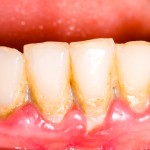
Periodontal disease is very common and treatment usually consists of active periodontal therapy (APT) and supportive periodontal therapy (SPT) or maintenance. Clinical outcomes for periodontal disease can be affective by a number of factors e.g., compliance with treatment, disease status on presentation, age, smoking status, oral hygiene practice, and systemic disease.
The aim of this systematic review was to analyse the effect of appointment compliance during SPT on tooth loss and to investigate the potential parameters affecting the association between compliance and tooth loss.
Methods
Searches were conducted in the PubMed, Embase, and Cochrane Central Register of Controlled Trials (CENTRAL) databases for randomised or non-randomised controlled trials and prospective or retrospective cohort studies. Two reviewers independently carried out searching, selection, data abstraction and quality assessment of the studies. The Newcastle-Ottawa scale (NOS) was used to assess study quality as only cohort studies were identified.
The primary outcome was the pooled risk ratio of tooth loss (RRTL). The risk of tooth loss was defined as the total number of teeth lost in a specified follow-up period during SPT divided by the total number of teeth at the beginning of SPT. A benefit-cost analysis was conducted to evaluate the cost efficiency of being compliant during SPT. The benefit-cost ratio is defined as the cost of replacing 1 missing tooth divided by the cost of having SPT during a specific period of time.
Results
- 8 studies involving a total of 1284 patients were included (1 prospective, 7 retrospective cohorts)
- The mean NOS score for the studies was 8.26 (range 7-9)
- Teeth in the regular compliant (RC) group had significantly less risk of being lost during SPT than did the teeth in the erratic-compliance (EC) group (pooled RRTL = 0.56: 95% CI 0.38, to 0.82], P < 0.01).
- Based on the result of risk difference, the number needed to treat (NNT) was 20, which meant to prevent 1 tooth from being extracted, 20 teeth have to be maintained in patients regularly compliant with SPT during longer than a 5-year follow-up period.
Conclusions
The authors concluded: –
A patient’s regular compliance with appointments during SPT can reduce the risk of having tooth loss. The degree of compliance is negatively related to the risk of tooth loss. One should, however, be careful to interpret all the results due to the considerable data heterogeneity.
Comments
The reviewers have followed a sound methodological approach in this systematic review and their findings suggest that patients benefit from being compliant with periodontal maintenance treatment, having less risk of tooth loss. There are however some caveats, only a limited number of studies were available with only one of them having a prospective design. There were variations in the studies identification of the degree of compliance, which could have an impact of the findings. In addition, as the authors note, ‘the quality of maintenance procedures, severity of periodontitis, and susceptibility of patients are other factors that can cause the considerable heterogeneity of estimates’ and these could not be analysed due to lack of information in the included studies.
Links
Lee CT, Huang HY, Sun TC, Karimbux N. Impact of Patient Compliance on Tooth Loss during Supportive Periodontal Therapy. A Systematic Review and Meta-analysis. Journal of Dental Research. Published online before print March 27, 2015, doi: 10.1177/0022034515578910

Don’t miss – Periodontal disease: compliance with treatment improves outcomes http://t.co/XWfXOtaDHO #EBP
http://t.co/vZ0JDMbIJH http://t.co/67YJQG4eG5
[…] Periodontal disease: compliance with treatment improves outcomes […]